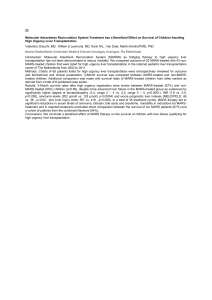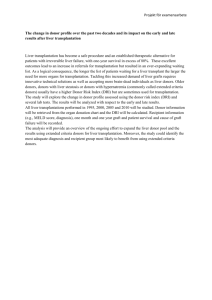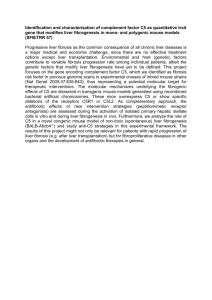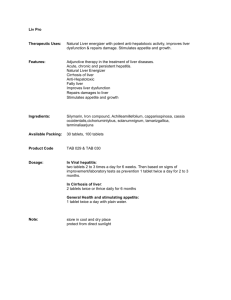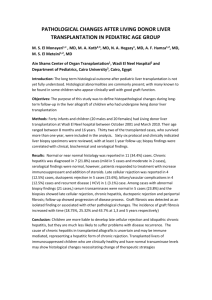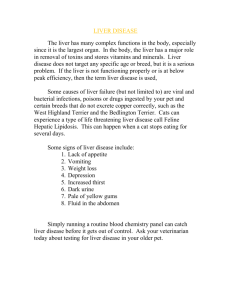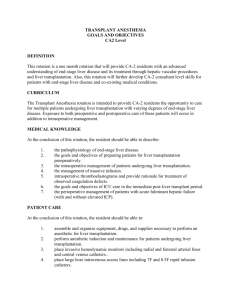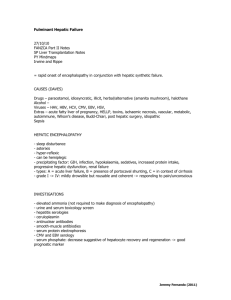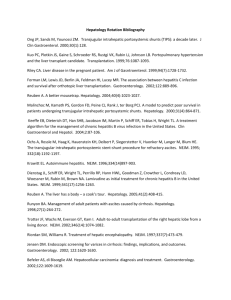MEDICAL CRITERIA FOR LIVER TRANSPLANTATION
advertisement
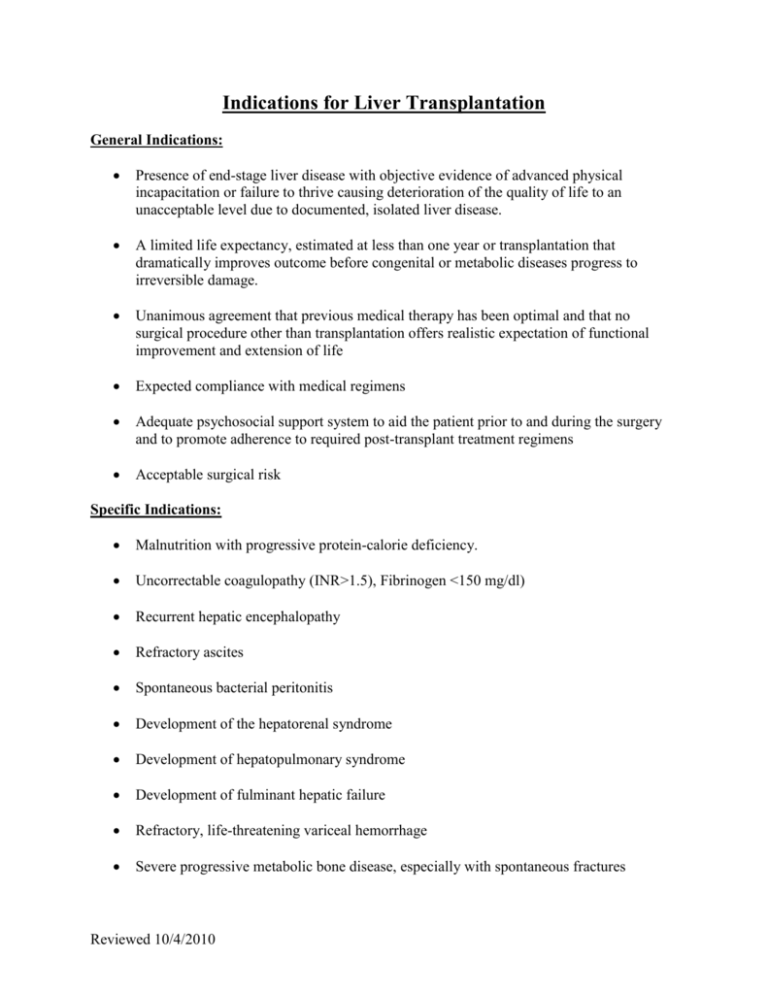
Indications for Liver Transplantation General Indications: Presence of end-stage liver disease with objective evidence of advanced physical incapacitation or failure to thrive causing deterioration of the quality of life to an unacceptable level due to documented, isolated liver disease. A limited life expectancy, estimated at less than one year or transplantation that dramatically improves outcome before congenital or metabolic diseases progress to irreversible damage. Unanimous agreement that previous medical therapy has been optimal and that no surgical procedure other than transplantation offers realistic expectation of functional improvement and extension of life Expected compliance with medical regimens Adequate psychosocial support system to aid the patient prior to and during the surgery and to promote adherence to required post-transplant treatment regimens Acceptable surgical risk Specific Indications: Malnutrition with progressive protein-calorie deficiency. Uncorrectable coagulopathy (INR>1.5), Fibrinogen <150 mg/dl) Recurrent hepatic encephalopathy Refractory ascites Spontaneous bacterial peritonitis Development of the hepatorenal syndrome Development of hepatopulmonary syndrome Development of fulminant hepatic failure Refractory, life-threatening variceal hemorrhage Severe progressive metabolic bone disease, especially with spontaneous fractures Reviewed 10/4/2010 Debilitating pruritus Recurrent episodes of biliary sepsis Unresectable primary hepatic malignancy confined to the liver In-born errors of metabolism Delayed cognition and physical development secondary to chronic liver disease Contraindications to Liver Transplantation The following deleterious factors negatively influence the outcome of liver transplantation and therefore constitute contraindications to surgery. Absolute Contraindications: Extrahepatic malignancy Uncontrollable systemic sepsis or viral infections Active alcoholism or drug abuse in the presence of chronic liver disease. The patient must have 6 months of documented abstinence in the presence of chronic liver disease. In the Acute Liver failure patients, obtain psychiatry consultation for assessment of the family support structure and likelihood of recidivism. Irreversible advanced cardiac, pulmonary or other organ disease Acquired immunodeficiency syndrome (AIDS) Irreversible Multisystem Organ Failure Uncorrectable congenital anomalies Relative Contraindications: History of behavior pattern or psychiatric illness considered likely to interfere significantly with compliance Inability to obtain adequate social support system HIV positive state Previous malignancy (there must be a disease-free interval of (2) two to five (5) years. Reviewed 10/4/2010 Obesity Reviewed 10/4/2010

